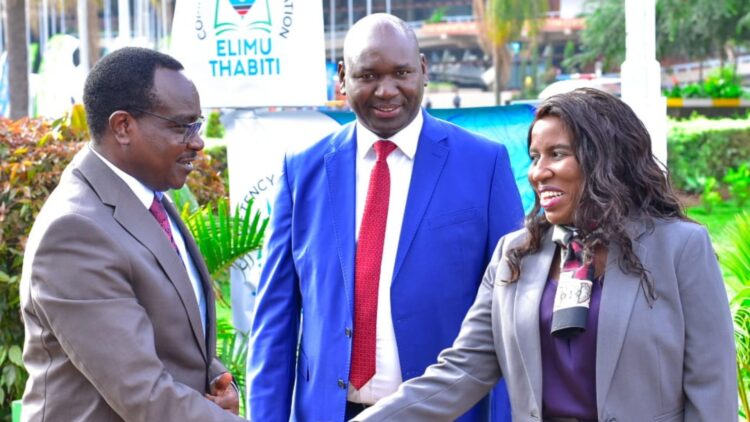IMF-Backed Audit Targets Kenya’s Sh676.92 Billion Education Budget.
Kenya’s education sector, which commands a massive Sh676.92 billion budget, is facing a significant overhaul following an impending audit supported by the International Monetary Fund (IMF).
The review forms part of a governance and diagnostic programme agreement reached between Kenya and the IMF in October 2024, responding to growing social unrest and demonstrations against high taxes and mismanagement of public resources.
The IMF’s initiative aims to monitor governance and transparency, focusing on curbing corruption and the misuse of public office for personal benefit. The programme entails comprehensive, country-specific evaluations of corruption risks and governance weaknesses, with recommendations on strengthening mechanisms to reduce corruption and revenue losses.
The National Treasury has indicated that the final report of the governance and anti-corruption diagnostic is expected from the IMF before the end of October, with the education sector identified as a primary focus for planned expenditure rationalisation.
National Treasury Cabinet Secretary John Mbadi explained that the government had requested the governance diagnostic from the IMF and noted that the mission, having visited Kenya, assured the country of the report’s completion by October. Mr Mbadi remarked that there was no reason why the report should not be published once finalized.
“We feel that education, which is taking the largest chunk of our budget, needs to be looked into in terms of strengthening the systems,” said Mr Mbadi.
He questioned whether capitation funds were genuinely supporting enrolled students or merely financing ghost names. He also highlighted the Sh400.0 billion spent on teachers’ salaries as an area requiring scrutiny.
Breakdown of the Education Budget
Within the education sector’s budget, the Teachers’ Service Commission (TSC) receives the largest share at Sh366.5 billion, of which 97 percent—or Sh365.6 billion—is allocated to teachers’ salaries.
This figure has seen a 5.2 percent rise between Supplementary Budgets I and II for the 2024/25 financial year. The State Department for Basic Education follows with an allocation of Sh138.8 billion, while the State Department for Higher Education and Research is close behind at Sh135.9 billion. The State Department for Technical Vocational Education and Training receives the least, with Sh35.2 billion.
“These are suggestions that we have shared with the IMF because we are the ones who understand our systems best,” Mr Mbadi commented. He reiterated his confidence that the final report would be made public.
On April 17, 2025, during a session with the National Assembly, Mr Mbadi disclosed that spending on the education sector and increased compensation for teachers and lecturers were the main drivers of the 6.7 percent rise in Kenya’s monthly public sector wage bill between December 2024 and January 2025.
Read Also: Ministry of Education Transitions from CBC to CBE
Mr Mbadi informed Members of Parliament that the public sector wage bill had climbed from Sh75 billion in December 2024 to Sh80 billion in January 2025. This was primarily attributed to the onboarding of Junior Secondary School (JSS) teachers at enhanced salaries, adjustments to the salaries of the disciplined forces, and a Sh4.3 billion salary increment for lecturers.
The education audit comes at a crucial moment as Kenya strives to secure a new agreement with the IMF after the early termination of the previous programme. The country faced difficulties in meeting the reform conditions previously agreed upon with the IMF. As a result of ending the programme ahead of schedule, Kenya forfeited Sh109.9 billion in funding for the current financial year.
IMF-Backed Audit Targets Kenya’s Sh676.92 Billion Education Budget.
Follow Teachers Updates on Facebook, LinkedIn, X (Twitter), WhatsApp, Telegram, and Instagram. Get in touch with our editors at hello@teachersupdates.news.



Discussion about this post